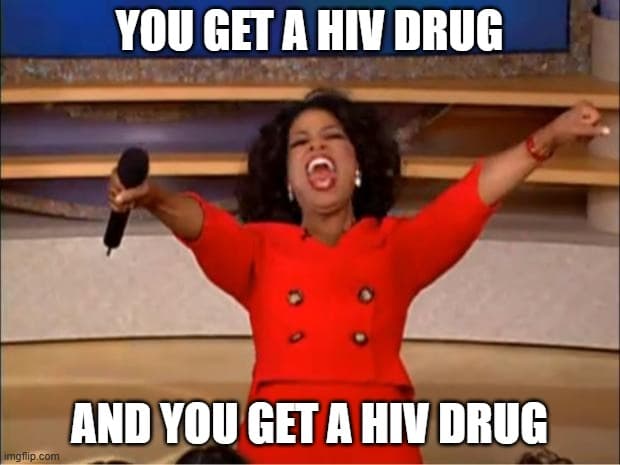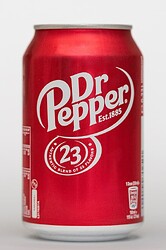I naively thought that it would be helpful for long haulers to have a list of what doctors are trying to treat long haul. 7.2K views. But here’s the kicker: I don’t know if it indirectly caused more harm than good. ![]()
When I first posted the list online, I didn’t realize that the doctors can’t all be right. There actually isn’t a long list of effective treatments with high response rates. Long COVID (and postvax and ME/CFS) would be easy to treat if that were the case.
I happy to be lucky because I recovered from chronic illness. However, what worked for the recovered won’t work for the vast majority of people. Response rates on individual treatments are very low (perhaps in the 2% range). But when you read the scientific literature, you find all sorts of studies saying that most of their patients got better or recovered. ![]() (I’ve collected survey data which shows that patient experiences are quite different that the published case studies.)
(I’ve collected survey data which shows that patient experiences are quite different that the published case studies.)
I also didn’t know about the low quality of the scientific literature out there.
- It is not clear to me why Robert Thomas did not disclose his commercial connection to the Keep-healthy Ltd supplements that he did studies on.
- Safavi, Avindra Nath, and others studied postvax patients at a cutting-edge NIH research hospital. Some patients of theirs have publicly disputed the pre-print paper’s claim that they recovered.
I could go on but… I don’t want to elaborate on all of the potentially questionable actors out there.
I don’t forsee myself explaining the Bruce Patterson / Synlabs / Ria Heslop related tweets to you. My heart is heavy because it’s not worth it. Lawsuits are crazy expensive- and unfortunately I speak from experience.
What I will say is this: the scientific literature is filled with bad science. Researchers typically don’t have a job if they don’t get funding, so there’s a strong incentive for them to get funding. The end result is that they will pile more bad science onto existing failed ideas because it helps them get funding. There are strong incentives for them to work with other researchers in whitewashing their field (e.g. not calling out bogus science) so that they can all continue to get funding.
The picture below —a rat with a giant eggplant-like structure ![]() — got past peer review and the journal’s editor:
— got past peer review and the journal’s editor:
There are also plenty of spellling misteaks in the picture.
Engagement and social media algorithms
When I first started posting the list, it was a message of false hope.
When I tried to get a more accurate message out, that post didn’t get anywhere near the same number of upvotes and views (7.2k versus 1.9K). What this means is that chronic illness sufferers see a lot more false hope than more accurate information.
I have serious concerns because some of the experimental treatments that people are talking about have a black box warning, strong side effects and/or drug interactions. That includes the HIV drug ritonavir in Paxlovid and the HIV drug maraviroc.
Before patients try crazy drugs, they should have accurate information about what they’re getting themselves into. Unfortunately, Reddit wants its users to see engaging content so that they will use Reddit more. That really gets in the way of good medical outcomes.
We know that at least one person, e.g. Heidi Ferrer, died following medical experimentation. You can find different angles on Ferrer here and here but TRIGGER WARNING: the way she died was brutal and there was self-harm involved. (*It’s not clear which drug or drugs were responsible for Ferrer’s demise- in my opinion.)
A bitter pill to swallow
The vast majority of the treatments discussed in the support groups have been tried (data here). The social media platforms heavily skew what you see because there are reasons not to post negative experiences:
- People arguing with you
- r/LongCovid censorship
- no upvotes → nobody sees it → why even post
But when I survey people about their experiences with treatments, the survey respondents will report more negative experiences than what you see on social media. What you see on social media is a very distorted view of reality. It’s like everybody is recovering and treatments never go horribly wrong.
I can see the appeal of finding answers on the Internet. I used to be sick. I tried a lot of drugs- one of which caused enough pain that I started limping when I walked. The social media companies pour billions into giving us what we want: quick, easy answers to our problems.
But the truth is that we don’t have great answers for chronic illness. I’ve been doing survey research to help figure out what’s going on- but that’s only great for identifying potential/likely safety issues with treatments. The data is murkier when it comes to treatment because any good data is mixed with bad data. Treatment is not that simple and it can’t be boiled down into a simple statement like “engagement first, accuracy second”.
The Dr. Pepper test
There’s a saying in medicine: First, do no harm.
Dr. Pepper will consistently honour that principle. This is because Dr. Pepper is a brand of soft drink and not an actual doctor.
Dr. Pepper will not waste your money on expensive treatments.
The question we should ask is… is what we’re doing better than zero medical advice from an inanimate object? Will it lead to more benefit than harm? We don’t have a definitive answer to those questions. But I’m willing to bet that Dr. Pepper would do better than the list of doctors/researchers that I compiled.
Getting educated and not clickbaited
I hope that patients get smarter and wiser about the unreliable information out there, whether it’s from doctors, researchers, people in MLM schemes (multi-level marketing), or fellow patients. I realize that people are going to learn things the hard way but… hopefully there will be less of that.
While hindsight is 20/20, I regret not being more skeptical when I compiled and posted the list. My apologies if you lost money or suffered medical harm as a result of it.



